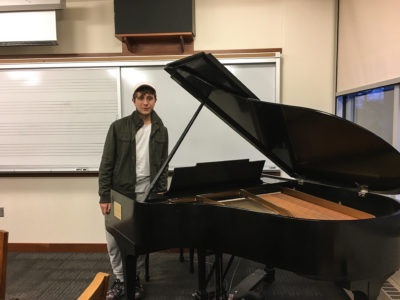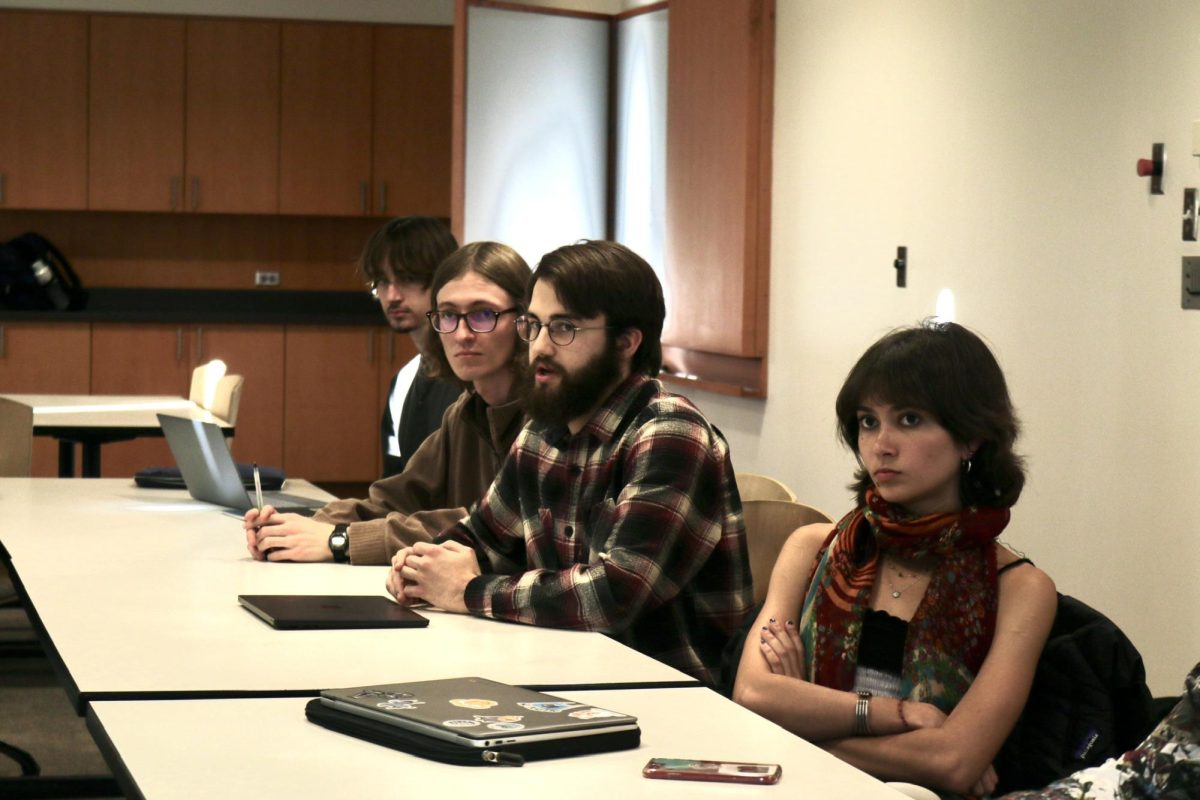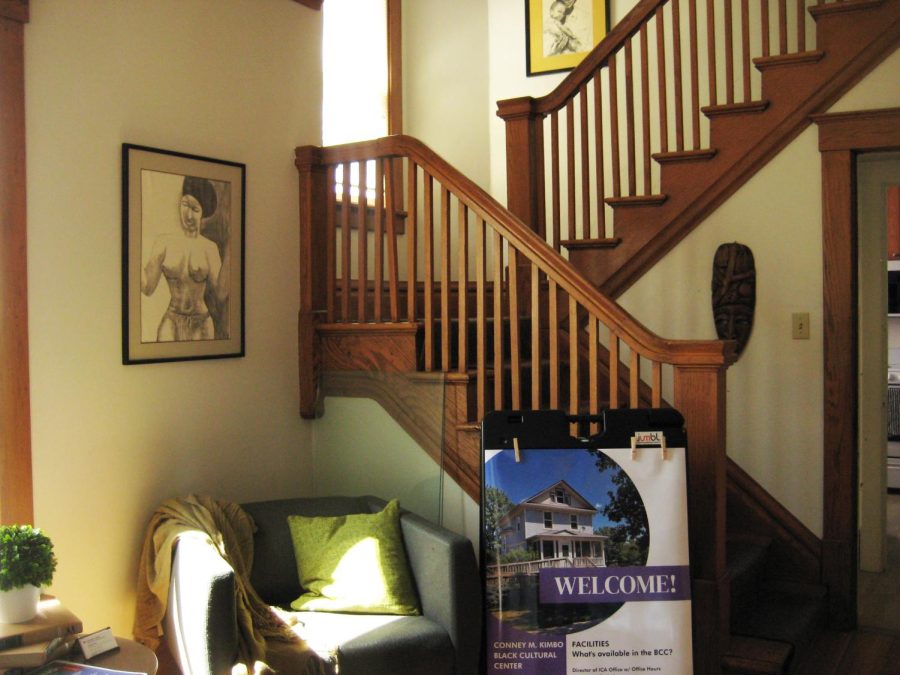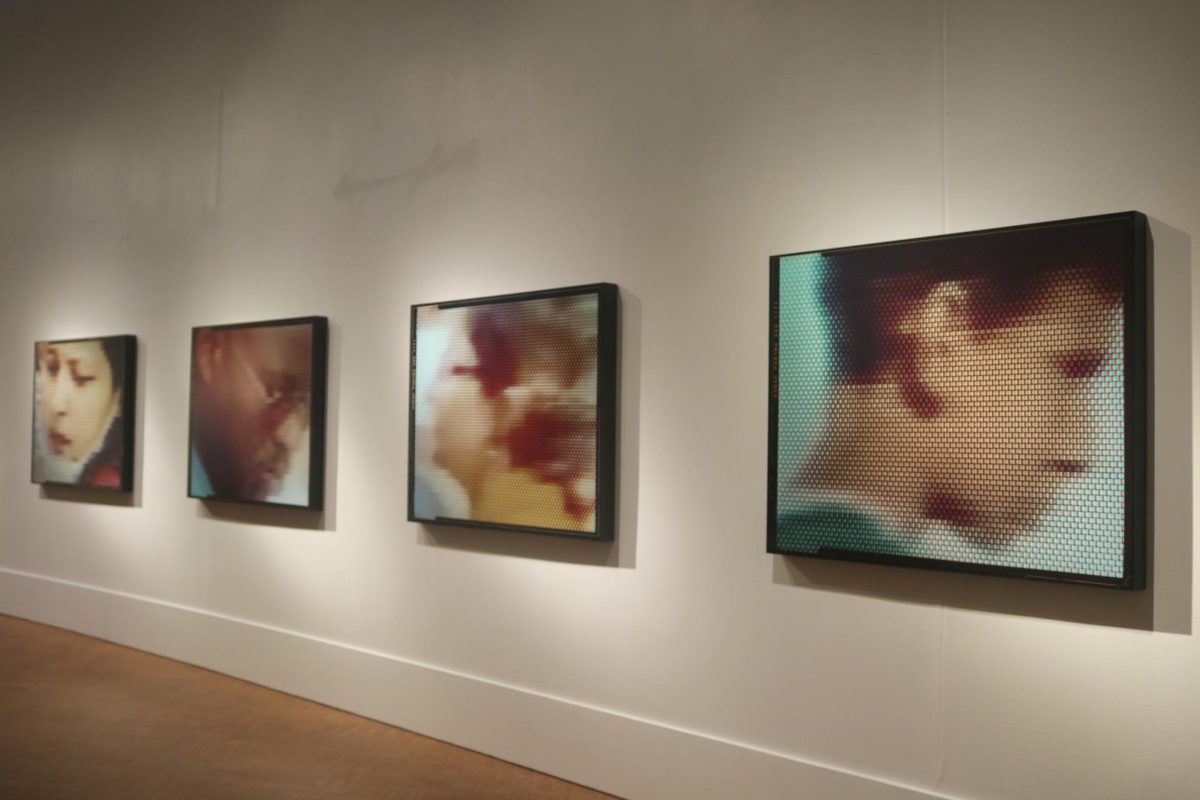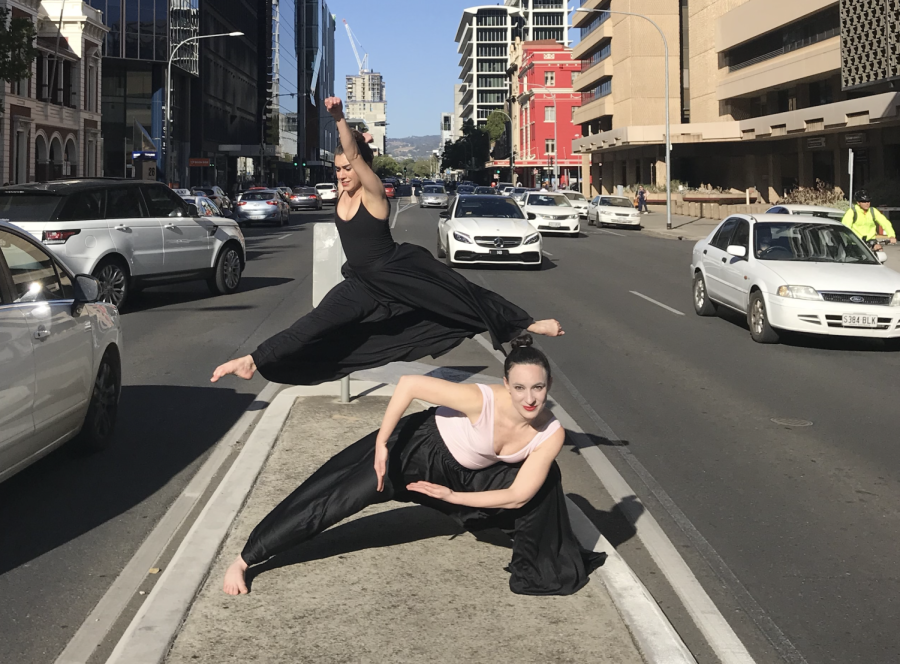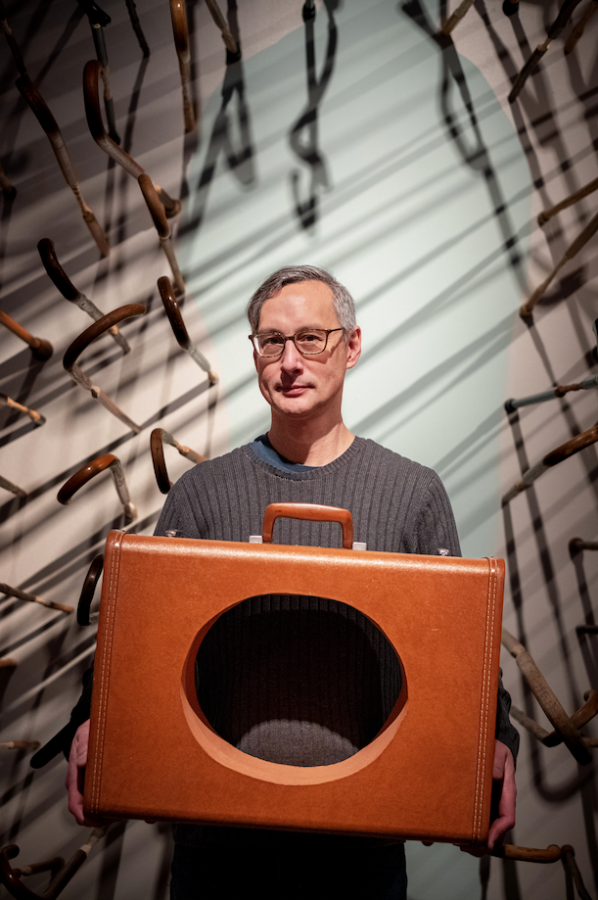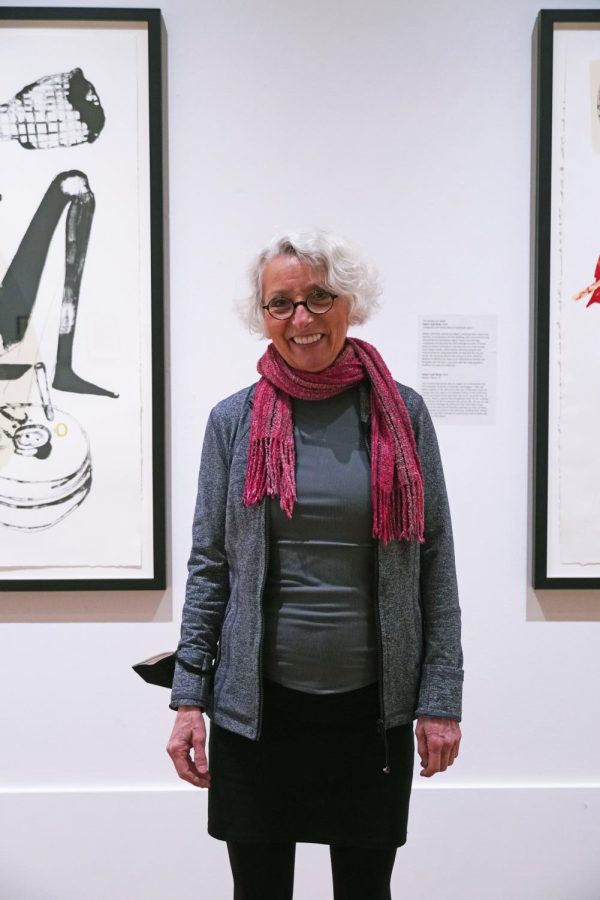Alec Woods ‘19 taught himself piano in high school using adult piano method books. When he came to the College, he started private lessons in piano for the first time. Now, Woods is 70 pages into a piano piece called ‘Medusa-fractal,’ waiting to hear from a Ph.D. program in musicology and has just performed a senior recital of his own compositions. How did he get here?
“When I came to Grinnell I thought I would be a physics major. I didn’t think there was any way in the world I wouldn’t be that. But then I switched to music for sure my second year- partly because of intro to composition,” said Woods.
Composition is Woods’ longtime love. While he was just a beginner, Woods took up a practice that most musicians take years to start: composition, writing pieces for the piano and teaching himself method at the same time by using a computer program called Finale that would play back notes he entered in.
“I knew how to play the piano, so I just started writing little pieces for the piano,” he said.
As Woods grew as a pianist, he abandoned Finale and turned to paper to write his compositions, feeling restricted by the robotic quality of the computer. With sheet music, Woods says, he can do anything he wants with his music.
In his third year at the College, Press, an independent student publication organization, published Woods’ collection of piano compositions, “Smoke and Mirrors,” (which Woods said he no longer cares for). A piece from the collection, “Toccata” was selected to be played by Iowan pianist Brooke Joyce. The following summer, Woods got the key to the music seminar room all to himself, resulting in a brass quintet composition and a lot of free time spent with the piano.
Woods’ compositional style is inspired by Russian music, in particular by the composer Alexander Scriabin, whom Woods is currently studying in an independent study with Professor Tom Brown, unpacking the philosophical ideas of Scriabin’s music and the music’s cultural context within its time period.
The theme of time runs throughout Woods’ work. Last Tuesday, he performed a concert featuring one piece from every decade since 1900, ending with his own music for the 2010 decade.
“As far as classical music goes, people are only familiar with older stuff. When you think of a composer, Mozart, Beethoven, they’re pretty old guys. I’m glad I was able to work on this music because it’s closer to home, more modern. I feel it taps into more relevant themes of living in the 21st century,” he said.
The piece Woods chose to represent the 1970s was the modernist “Dream Images (Love-Death Music)” by George Crumb.
“It’s kind of all over the place and noisy,” said Woods.
The part of the piece that he finds most interesting is in the middle, where Crumb quotes a piece by the relatively more well-known composer Chopin, with directions to play this excerpt “Musingly, like the gentle caress of a faintly remembered music.”
The marker, Woods said, suggests that Chopin is just a memory. This idea fits within his views on classical music: “We are very preoccupied with very old stuff, what’s come before. To treat it more as a memory and to move past it would make classical music more accessible.”
Woods self-described “irreverent” position on classical music is related to the physicality of playing the piano.
“Classical music has tended to emphasize the mind over body, there’s a degree of reverence and hyper-seriousness that’s expected from pianists, and for me, it is repressive,” he said. “I don’t have the right personality to play old music in that expressive, staring into space with your eyes closed kind of way. I’m not very patient and I don’t like to think too hard about it. I’m more about lightning bolts, thundering heartbeats, possessed rhythms, shimmering seas of sound. It needs to be visceral and exciting! But this is hard to find before 20th century music, so I stick to the newer stuff.”
Woods said he loves the piano because of this sensation of connecting physical movements to sound: “With your little fingers you can make a cosmic kaleidoscope of sound, waves of color that pulsate with your bodily rhythm. It’s real magical.”
